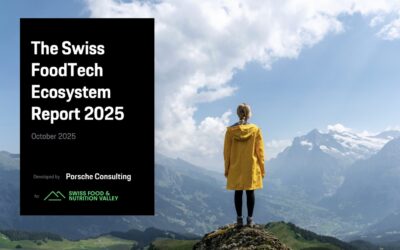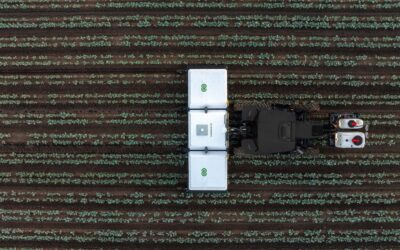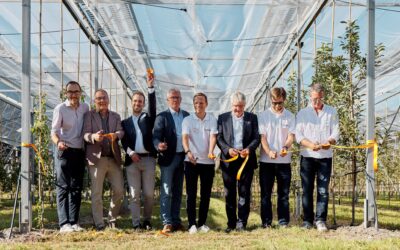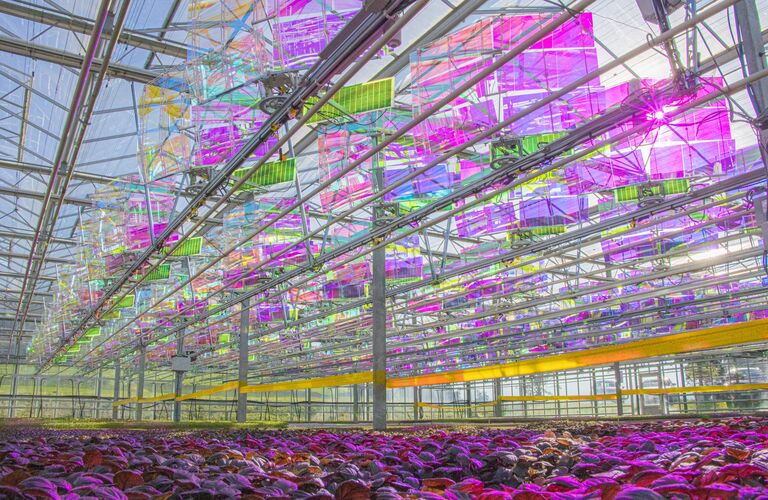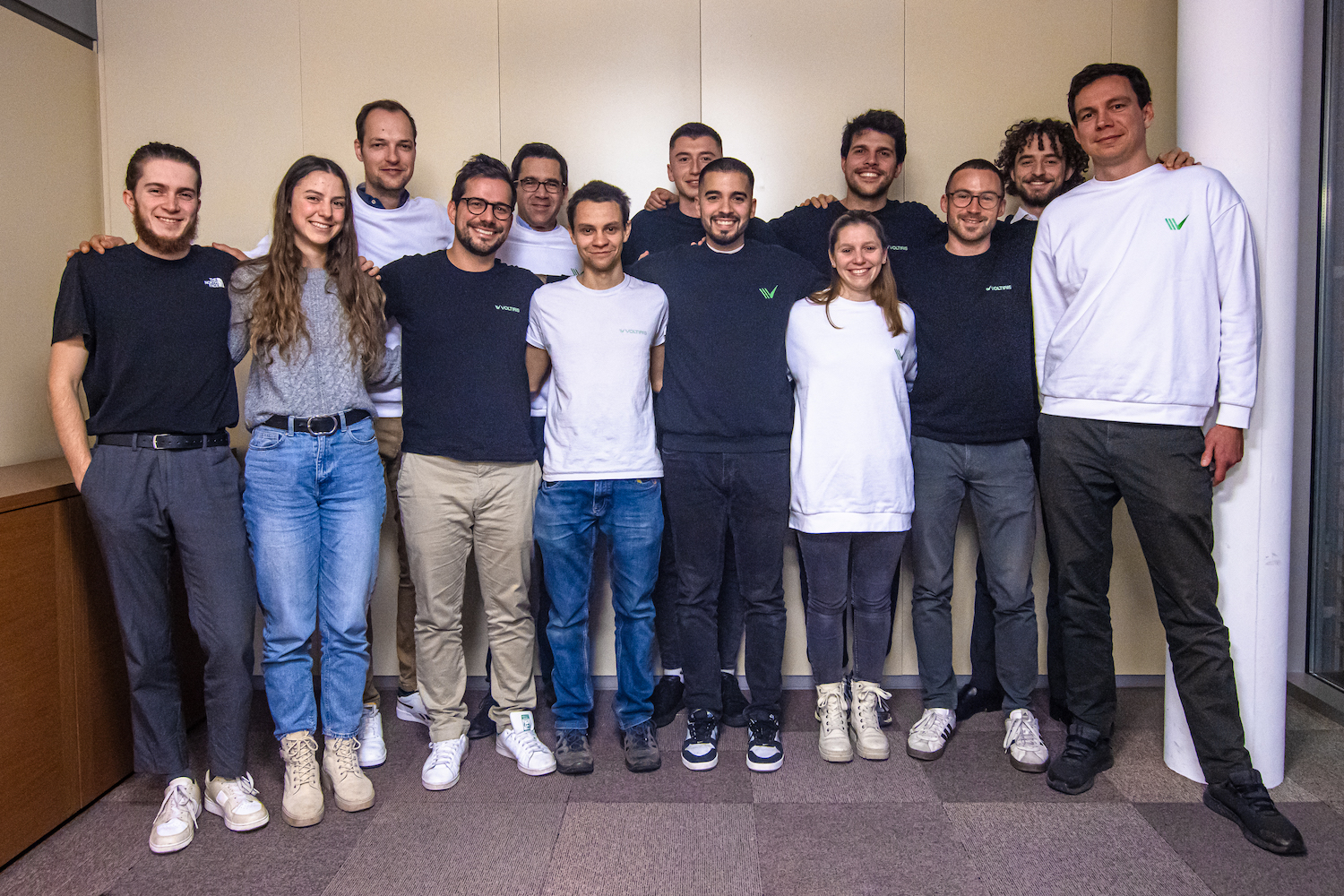Swiss Food & Nutrition Valley...
Givaudan collaborates with Dole Asia Holdings to upcycle green bananas into a natural texturiser
Givaudan collaborates with Dole Asia Holdings to upcycle green bananas into a natural texturiser

Valley partner Givaudan has announced an agreement to distribute upcycled Green Banana Powder produced by Dole Specialty Ingredients. This collaboration provides product developers with a natural, high-performing, clean-label texurising solution, while helping to tackle global food waste.
A natural texturiser with added nutritional appeal
Givaudan has announced an agreement to distribute a unique upcycled Green Banana Powder ingredient produced by Dole Specialty Ingredients (DSI), a business unit under Dole Asia Holdings Pte. Ltd.
Texture is one of the keys to creating a complete and enjoyable multisensorial food experience. Green Banana Powder can serve as an effective replacement for gum, pectin and modified starches in applications like soups and sauces. It can also increase the softness of baked goods and enhance the mouthfeel of extruded snacks. Packed with fruit content, Green Banana Powder adds fibre and nutritional appeal to products along with the desired texture and mouthfeel.
“Texture isn’t just a sensation, it’s an essential element that shapes how we experience food – from the creaminess of a sauce to the crispness of a snack. With our Sense Texture solutions, we’re not only delivering clean-label alternatives but also elevating the eating experience with natural, upcycled ingredients like Green Banana Powder. This collaboration with Dole allows us to offer high performing products that also contribute to a more sustainable food system.”
Sylvain Jouet, Global Product Manager Sense Texture, Taste & Wellbeing
Tackling food waste
Each year, an estimated 30-40% of bananas worldwide are wasted because they don’t meet quality standards.1 Consumer research has shown that 81% of global consumers say it’s important to avoid food waste2, and 51% of consumers who find upcycled ingredients appealing would like to see an upcycled certificate on food products.3 Made exclusively from upcycled green bananas, Green Banana Powder offers an innovative way to address food waste concerns. The new agreement positions Givaudan as the partner of choice for food developers seeking upcycled, clean-label alternatives to synthetic texturisers.
“By transforming unripe bananas into Green Banana Powder, we not only help reduce food waste but also create an ingredient that can be seamlessly integrated into a variety of food applications. This allows us to drive more sustainable supply chains while offering consumers the healthier choices they’re looking for.”
Wei Tze Ooi, Managing Director, Dole Specialty Ingredients (DSI)
Given that Green Banana Powder is a recognisable and functional ingredient with a secure supply chain, this collaboration is poised to make an impact at scale. Givaudan will be the exclusive commercial collaborator for DOLE® Green Banana Powder in key market countries in Europe and the Americas while the ingredient can be used in Givaudan solutions around the world.
About Givaudan
Givaudan is a global leader in Fragrance & Beauty and Taste & Wellbeing. We celebrate the beauty of human experience by creating for happier, healthier lives with love for nature. Together with our customers we deliver food experiences, craft inspired fragrances and develop beauty and wellbeing solutions that make people look and feel good. In 2023, Givaudan employed 16,260 people worldwide and achieved CHF 6.9 billion in sales with a free cash flow of 13.3%. With a heritage that stretches back over 250 years, we are committed to driving long-term, purpose-led growth by improving people’s health and happiness and increasing our positive impact on nature. This is Givaudan. Human by nature. Discover more at www.givaudan.com
About Givaudan Taste & Wellbeing
Powered by innovation and creativity, Givaudan Taste & Wellbeing aims to shape the future of food by becoming the co-creation partner of choice to its customers. Built on its global leadership position in flavours and taste, the Company goes beyond to create food experiences that do good and feel good, for body, mind and planet. With an expanded portfolio of products across flavours, taste, functional and nutritional solutions and a deep knowledge of the food ecosystem, Givaudan’s passion is to collaborate with customers and partners to develop game changing innovations in food and beverage. This is Givaudan. Human by nature. Learn more about how we are shaping the future of food at www.givaudan.com/taste-wellbeing
Never miss a Swiss food innovation morsel.
Latest News
The Swiss FoodTech Ecosystem Report 2025 maps key trends shaping the future of food in Switzerland
Trilliome wins 1st prize in EIT Food’s “Food as Medicine” accelerator
Swiss startup Trilliome has won first...
Ecorobotix secures $150M to accelerate AI-powered Plant-by-Plant™ care
Ecorobotix, the global leader in...
Insolight opens its first agrivoltaic orchard installation in Conthey
Conthey, Canton of Valais, Switzerland...
